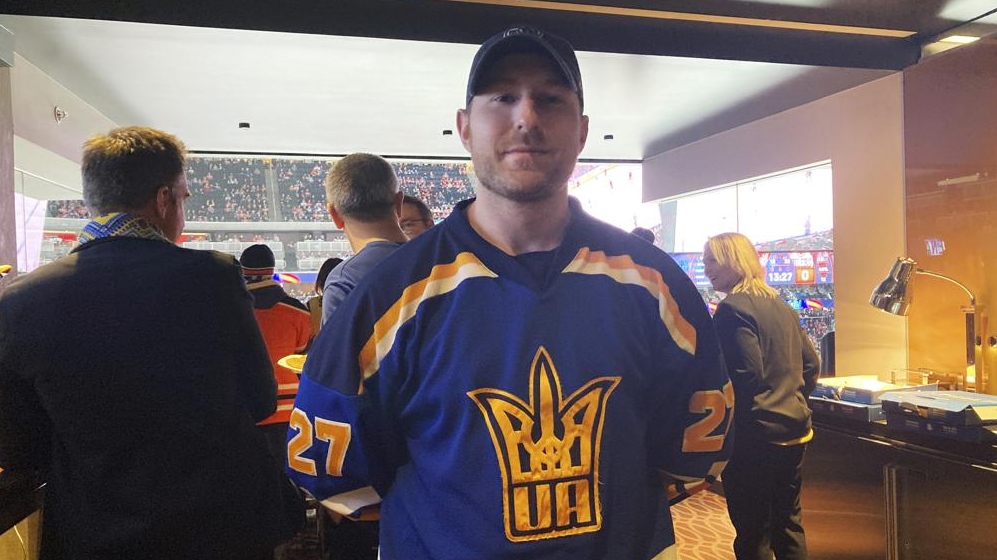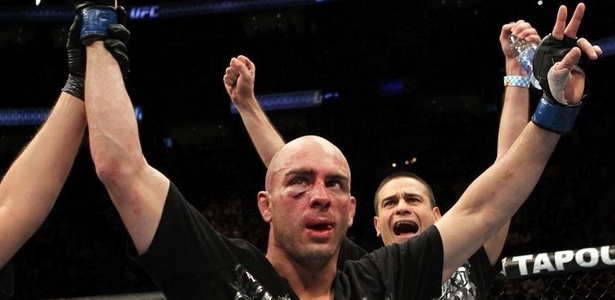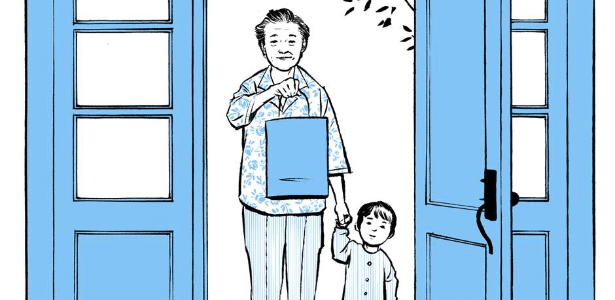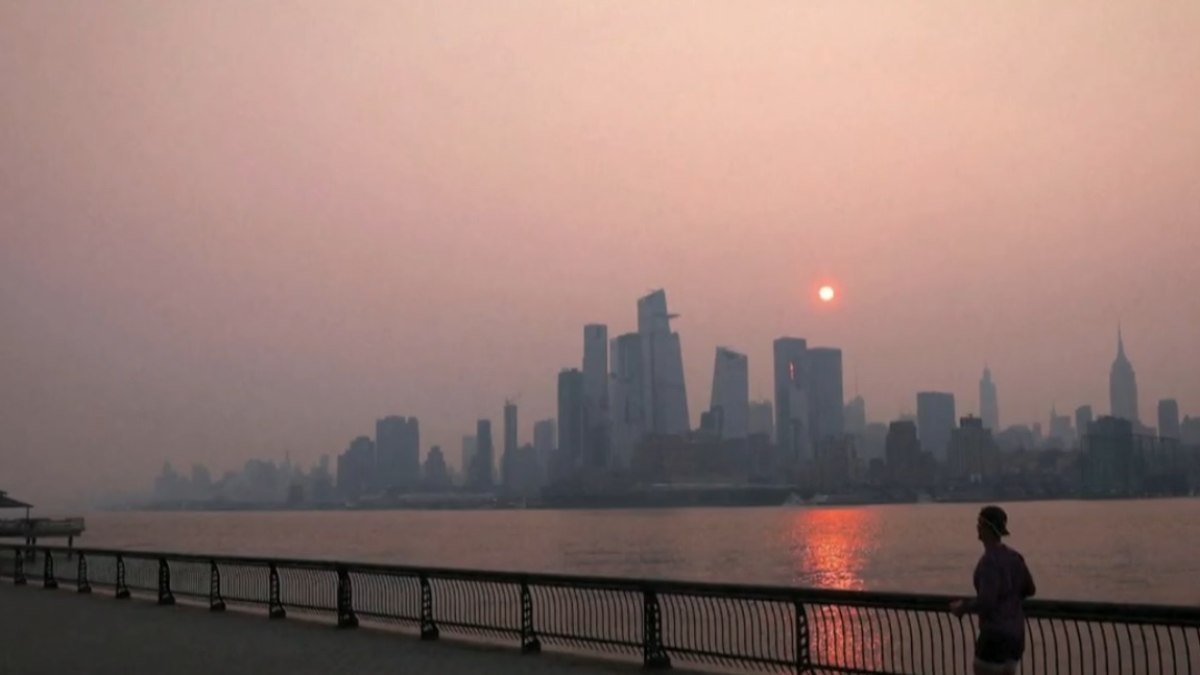VEGREVILLE –
Sergiy Ivanyuk did not sleep for the first 10 nights. Her thoughts are on her mother in her hometown of Kyiv and her boyfriend and two children who have taken refuge in the midst of the Russian invasion of Ukraine.
He wakes up from the little rest he can muster and checks his phone every morning for the latest updates.
“You shake it,” he said. “This is terrible.”
Ivanyuk fresh off the ice after a practice run for the Vegreville Vipers junior hockey. The team captain is 20-year-old Ukrainian colleague Mykyta Protsenko, whose sister remains in Ukraine, and members of a close-knit community of 5,700 people with strong ties to her homeland are working to get her out.
Hockey could not solve their problems or end the war which caused anger, distrust and sadness among those in Northern Alberta, one of the largest Ukrainian heritage and cultural centers in the world. But sport is the backbone of community, an equal refuge from horror and a gathering point for people who can’t help but feel helpless about a crisis thousands of miles away.
“Sometimes it’s hard,” said Protsenko, a native of the disaster-hit city of Kharkiv who was one of the top players for Vegreville in the Central Alberta Junior Hockey League. “Sometimes you focus, sometimes you don’t. Everything depends. Every day brings something new. Town helps and the team helps and everyone helps how they can help.”
In the Ukrainian-Canadian community in Alberta, hockey is a welcome constant. From the NHL’s Edmonton Oilers and Calgary Flames to youth leagues, teams play the Ukrainian national anthem, raise funds for humanitarian and military aid, and try to use sport for whatever good they can.
Members of Vegreville’s under-18 team asked minor hockey association president Tina Warawa if they could play Ukraine’s national anthem before “O Canada” at the game. He saw some players crying while listening to the song.
“They said: ‘We can stand here today at our age and play hockey and enjoy the game. There were children our age in Ukraine who picked up guns and they fought for their country and their lives,’” he recalls. “They really understand the gravity of what’s going on.”
The Viper have half a dozen players of Ukrainian descent along with Protsenko. Warawa and city officials are also trying to figure out how to bring Protsenko’s 16-year-old sister to Canada. Viper general manager Bryan Brown said: “We really don’t know what to do for him but support him.
Protsenko’s biggest focus is on sharing information and fighting misinformation online.
“It’s so weird to see your hometown being bombed and you just watching the news and it’s like, oh, I’ve been to that house. Oh, that’s my friend’s house,” he said. “Or I once went for a walk with my grandmother there. It was very strange to see it, and it was very scary.”
Ivanyuk said he saw videos of the missile-hit area in Kyiv that is home to the arena where he started playing hockey.
“I just cried,” he said.
Training is the 44-year-old man’s escape.
“When you’re on the ice, you just concentrate on hockey,” Ivanyuk said. “You just went into a different world, and you put everything aside. And when you (finish) you just come back and start working, start thinking, start helping and stuff like that.”
Few know better about the support of the Ukrainian-Canadian community in Alberta than Ivanyuk, who moved to Edmonton in April 2011 with little money and no English. He sleeps in his car and endures sub-zero temperatures, reads books to learn the language and is greeted with open arms when he goes to the local Ukrainian church for help.
Within a week of arriving, he had a place to sleep, eat and shower, and he landed a job in Calgary to fulfill his Canadian dream. Ivanyuk. Now he pays for it by advising young Ukrainians who moved there while also making an impact on hockey by coaching.
“The whole community here is very strict,” he said. “It’s a small town, and everyone knows everyone.”
An hour’s drive west on Alberta Highway 16A, the Ukrainian community in Edmonton is larger but still just as dense.
Along the way, red and white maple leaf flags blowing in the wind leave no doubt this is Canada, but every few kilometers there’s a nod to the native homeland of many in the area. Outside the gates of the Ukrainian Culture village there is a yellow sign that reads, “Stand With Ukraine. On the edge of one of the farms outside Edmonton, Ukraine’s only blue and yellow flag stands out against a snow-swept meadow.
At the Mundare Stawnichy Sausage House in the capital Alberta, the Russian invasion is on everyone’s mind, from third-generation Ukrainian owner Colette Hennig and niece Kyler Zeleny to deli and restaurant employees. Sitting in his office next to a photo of himself with Wayne Gretzky, who traces his family roots to Ukraine, Hennig collects pins, scarves, and candles to sell; they have already passed every available flag in the area.
Customers share their stories of friends and family back home trying to avoid bombs and gunfire and fleeing to Europe or North America. Nothing is more Ukrainian-Canadian than poutine perogy, and Zeleny is considering renaming the dish “Less Putin More Poutine” with the proceeds going to humanitarian foundations.
“Staff discussed it that it was even difficult for them, even though they didn’t have anyone there they knew – just heard all the stories because everyone seemed to have a connection,” said Hennig, who added that $10,000 had been awarded. raised to aid efforts in Ukraine. “It’s amazing, really, how everyone came together. I just hope it doesn’t have to be because of this. ”
The family owned the Oilers ticket during the franchise’s heyday in the 1980s and early 90s when it won the Stanley Cup five times as hockey’s last real dynasty. Zeleny is set to go into the evening’s game against the Washington Capitals plotting to boo Alex Ovechkin, who has long voiced his support for Russian President Vladimir Putin.
Zeleny and his aunt do not blame Ovechkin for limiting his statements about Ukraine, given the near-impossible situation the star winger is in with his wife, children and parents in Russia and concerns for their safety. But that didn’t stop the boos from Rogers Place’s pocket every time Ovechkin touched his chip.
The taunts came loudly from a suite featuring members of the Canada-Ukraine Foundation, the Ukrainian-Canadian Congress, and others. But it was less cruel at Ovechkin than the situation itself, which has become a common ground on and off hockey arena.
“A lot of negativity and a lot of sadness and heartbreak and anger has been offset by this positivity and the support that is all around us,” said foundation president Orest Sklierenko. “And that’s all we can do from here to do these kinds of things.”
Helplessness is a common emotion from Vegreville to Edmonton, where war and the response to it are part of so many conversations. The Oilers played the Ukrainian anthem before their previous game against the Montreal Canadiens and before facing the Capitals, the Viter Choir and Folk Ensemble sang the Canadian anthem in English and Ukrainian.
Oilers Entertainment Group’s Executive Vice President of Communications and Gaming Tim Shipton, whose wife is of Ukrainian descent, said the cause meant a lot to the organization.
“We all know people in the community from Ukraine — it’s very woven into the fabric of Northern Alberta,” Shipton said. “We just want to play our small part in showing our support.”
Ivanyuk and Zeleny are among those already looking forward to the future and what the money raised will do to rebuild Ukraine after the war — whenever that is.
Right now, it’s not just about money, and it was evident during and after one of Kozak’s Hockey games after the invasion began. Playing an unwelcome opponent, the game has no penalties or cheap shots and conversation in the parking lot after making it clear there is respect and respect for Ukrainian-Canadians.
“They said, ‘We knew we could be on the ice, but putting everything aside, it’s incredible what happened,'” said Kozak’s Matt Karpiak. “They said they felt for us, and they only wished the best for us and our families who were there.”

“Total troublemaker. Alcohol aficionado. Social media specialist. Friendly travel nerd.”






